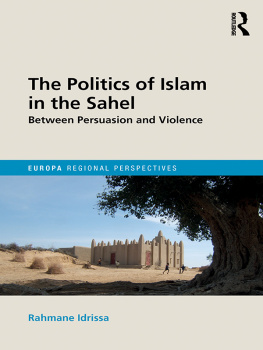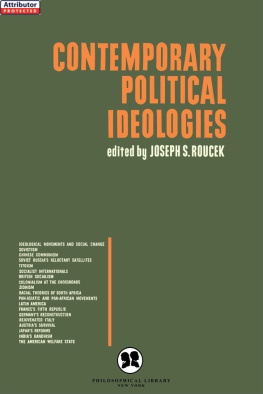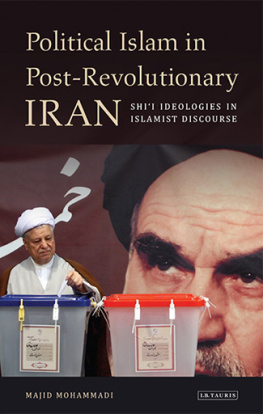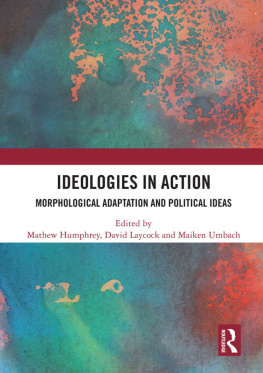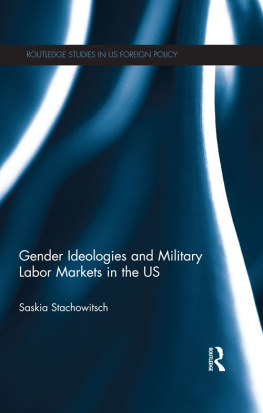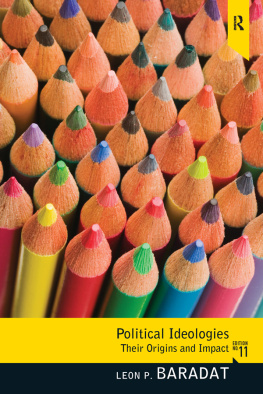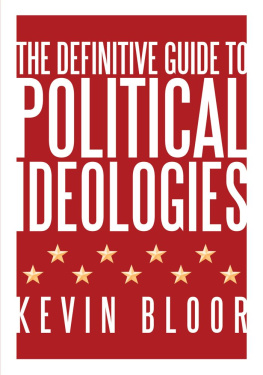The Politics of Islam in the Sahel
Ideologies need enemies to thrive, religion does not. Using the Sahel as a source for five comparative case studies, this volume aims to engage in the painstaking task of disentangling Islam from the political ideologies that have issued from its theologies to fight for governmental power and the transformation of society. While these ideologies tap into sources of religious legitimacy, the author shows that they are fundamentally secular or temporal enterprises defined by confrontation with other political ideologies both progressive and liberal within the arena of the nation state. Their objectives are the same as those of these other ideologies, i.e., to harness political power for changing national societies, and they resort to various methods of persuasion, occasionally breaking down into violence.
The two driving questions of the book are 1) whence come these ideologies? and 2) why do they sometimes result in violence? Ideologies of Salafi radicalism are at work in the five countries of the Sahel region Burkina Faso, Niger, Senegal, Mali and (Northern) Nigeria but violence has broken out only in Mali and Northern Nigeria. Using a theoretical framework of ideological development and various methods of historical analysis, the author traces the emergence of Salafi radicalism in each of these countries as a spark ignited by the shock between concurrent processes of Islamisation and colonisation in the 1940s. However, while the spark eventually ignited a blaze in Mali and Nigeria, it has only led to milder political heat in Niger and Senegal and has had no burning effect at all in Burkina Faso. By meticulously examining the development of Salafi radicalism over time in connection with developments in national politics in each of the five Sahelian countries, the author arrives at compelling conclusions about these divergent outcomes. Given the many similarities between the countries studied, these divergences show, in particular, that historical processes, the behaviour of individual state leaders, and national sociologies matter, and they warn against making assumptions about the existence of natural contradictions between religion (Islam) and secularism or democracy.
This volume offers a new perspective in discussions on ideology, which remains as is shown here the independent variable of many key contemporary political processes, either hidden in plain sight or disguised in a religious garb.
Rahmane Idrissa is a Nigerien political scientist, and is a research fellow at the Society, Work and Development Institute of the University of the Witwatersrand, South Africa, and at the Institute for Social and Cultural Anthropology of the University of Gttingen, Germany. He has previously co-authored the Historical Dictionary of Niger and LAfrique pour les nuls (Africa for Dummies).
Europa Regional Perspectives
Providing in-depth analysis with a global reach, this series from Europa examines a wide range of contemporary political, economic, developmental and social issues in regional perspective. Intended to complement the Europa Regional Surveys of the World series, Europa Regional Perspectives will be a valuable resource for academics, students, researchers, policymakers, business people and anyone with an interest in current world affairs with an emphasis on regional issues.
While the Europa World Year Book and its associated Regional Surveys inform on and analyse contemporary economic, political and social developments,the editors considered the need for more in-depth volumes written and/or edited by specialists in their field, in order to delve into particular regional situations. Volumes in the series are not constrained by any particular template, but may explore recent political, economic, international relations, social, defence, or other issues in order to increase knowledge. Regions are thus not specifically defined, and volumes may focus on small or large groups of countries, regions or blocs.
Still a Western World?
Continuity and Change in Global Order
Edited by Sergio Fabbrini and Raffaele Marchetti
Reconfiguration of the Global South
Africa and Latin America in the Asian Century
Edited by Eckhart Woertz
The European Mainstream and the Populist Radical Right
Edited by Pontus Odmalm and Eve Hepburn
The Politics of Islam in the Sahel
Between Persuasion and Violence
Rahmane Idrissa
First published 2017
by Routledge
2 Park Square, Milton Park, Abingdon, Oxon OX14 4RN
and by Routledge
711 Third Avenue, New York, NY 10017
Routledge is an imprint of the Taylor & Francis Group, an informa business
2017 Rahmane Idrissa
The right of Rahmane Idrissa to be identified as the author of the editorial material has been asserted in accordance with sections 77 and 78 of the Copyright, Designs and Patents Act 1988.
All rights reserved. No part of this book may be reprinted or reproduced or utilised in any form or by any electronic, mechanical, or other means, now known or hereafter invented, including photocopying and recording, or in any information storage or retrieval system, without permission in writing from the publishers.
Trademark notice: Product or corporate names may be trademarks or registered trademarks, and are used only for identification and explanation without intent to infringe.
British Library Cataloguing in Publication Data
A catalogue record for this book is available from the British Library.
Library of Congress Cataloging in Publication Data
Names: Idrissa, Rahmane, author.
Title: The Politics of Islam in the Sahel : between persuasion and violence/Rahmane Idrissa.
Other titles: Europa regional perspectives.
Description: New York : Routledge, 2017. | Series: Europa regional perspectives | Includes bibliographical references and index.
Identifiers: LCCN 2016056150 (print) | LCCN 2016057087 (ebook) | ISBN 9781857438666 (hbk) | ISBN 9781315270401 (e-book)
Subjects: LCSH: Islam and politicsSahel. | SalafiyahPolitical aspectsSahel. | TerrorismReligious aspectsIslam. | Islamic fundamentalismPolitical aspectsSahel. | SahelPolitics and government.
Classification: LCC DT530.5.M88 I37 2017 (print) | LCC DT530.5.M88 (ebook) | DDC 966.0088297dc23
LC record available at https://lccn.loc.gov/2016056150
ISBN: 978-1-85743-866-6 (hbk)
ISBN: 978-1-31527-040-1 (ebk)
This book may be presented to the reader starting with three seemingly unrelated facts: first, terrorism and extremist violence in parts of Africa, South Asia, Western Europe and in the US, characterised as Islamist, or even Islamic terrorism; second, a degree of consensus among political analysts that Islam and liberal democracy are incompatible; and third, attempts by countries in the West African region of the Sahel the area studied in this book to maintain regimes of liberal democracy as part of the third wave of democratisation. Especially in Western Europe and the US, the first two facts are sources of fear and anxiety in relation to Islam. To many in these parts of the world, the old issue of Islam and democracy has been answered in disquieting ways by events conceptualised as a titanic confrontation between clashing civilisations, with Islam seeking to destroy the values of the West. Such views are in turn rendered plausible by theories in which Islam or political Islam appears as an analytical category that almost mechanically correlates with violent radicalism and extremism. In these ways, the politics of Islam are seen as over-determined by violence and belligerency, with the religion itself being conceived as presenting a potential threat either to the physical security of Western citizens, or, more broadly, to the values and principles underpinning modern Western societies. Thus, for instance, from the Western perspective, the entry points into the tangle of issues described by the phrase politics of Islam are violence and pathology; as a result, counterterrorism has emerged as an interdisciplinary research and policy programme in which questions are asked and explanatory theories proposed that focus on Islamic violence and pathology. This study attempts to alter this perspective by delocalising the issues surrounding politics and Islam into the Sahel, shifting the focus of the conversation in some surprising ways.

